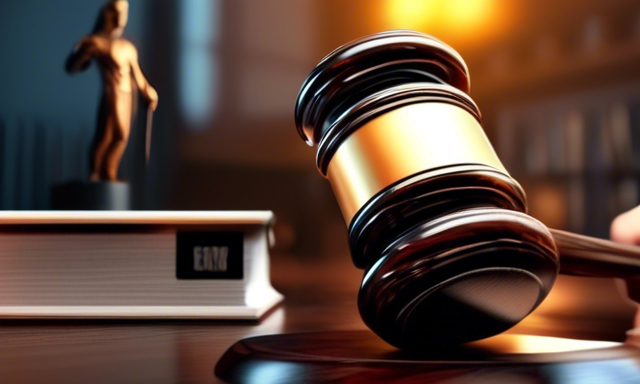Revolutionizing the AI Landscape: Anthropic’s Legal Woes
Anthropic, the AI startup backed by Amazon, Google, and Salesforce, is facing a class-action lawsuit in California federal court over alleged copyright infringement. Three authors accused Anthropic of building a multibillion-dollar business by stealing copyrighted books, including their own.
The authors claimed that Anthropic’s flagship ‘Claude’ family of large language models involves the extensive theft of copyrighted works. They alleged that Anthropic downloaded pirated versions of their works, made copies, and used them in their models.
- Anthropic hit with class-action lawsuit over copyright infringement
- Amazon, Google, and Salesforce back the AI startup
- Authors allege theft of copyrighted works for AI models
- Lawsuit details the alleged copyright violations by Anthropic
- Legal battle follows the debut of Anthropic’s powerful AI model
The lawsuit comes after the launch of Anthropic’s latest AI model, Claude 3.5 Sonnet, a chatbot similar to OpenAI’s ChatGPT and Google’s Gemini, which has gained popularity recently.
The authors stressed that copyright laws prohibit the actions undertaken by Anthropic, emphasizing the unlawful downloading and copying of copyrighted materials.
Legal Battles in the AI Industry
This lawsuit is not the first legal challenge for Anthropic. Previously, Universal Music sued the startup for copyright infringement related to song lyrics. Other publishers, including Concord and ABKCO, joined the legal action.
- Universal Music lawsuit cites widespread infringement of song lyrics
- Examples of copyright violations involving popular songs
- Lawsuit highlights the unlawful use of copyrighted works by Anthropic
Moreover, news organizations are also taking legal action against AI companies for copyright violations. The Center for Investigative Reporting sued OpenAI and Microsoft for alleged copyright infringement, echoing similar suits by prominent publications like The New York Times, The Chicago Tribune, and The New York Daily News.
- News industry grappling with AI-generated content challenges
- Lawsuits against OpenAI and Microsoft over copyright concerns
- Legal battles highlight the need for AI companies to adhere to copyright laws
Despite the legal challenges, some media outlets are collaborating with AI startups. OpenAI partnered with Conde Nast to display content from various publications using ChatGPT and SearchGPT.
Perplexity AI introduced a revenue-sharing model for publishers following plagiarism allegations. Several media outlets, including Fortune, Time, and The Texas Tribune, joined the Publishers Program initiated by Perplexity AI.
Embracing Collaboration Amid Legal Concerns
AI startups like OpenAI are forming partnerships with renowned entities in the media industry to leverage content for training models while ensuring compliance with copyright laws.
- OpenAI’s collaboration with Time magazine for content access
- Strategic partnerships between AI companies and media outlets
- Efforts to enhance AI models while respecting intellectual property rights
As the AI landscape evolves, it is essential for companies to balance innovation with legal adherence to copyright regulations, ensuring a sustainable and ethical integration of AI technologies in various sectors.
Hot Take: Navigating Legal Challenges in AI Development
As the boundaries of AI innovation expand, legal battles over copyright infringement underscore the importance of ethical AI development and responsible data usage. Collaborations between AI startups and media organizations offer opportunities for growth while emphasizing the necessity of respecting intellectual property rights in the digital age.





 By
By
 By
By
 By
By
 By
By
